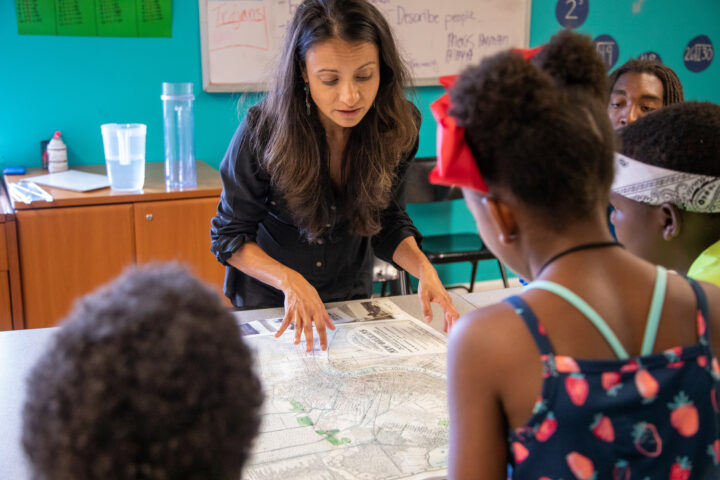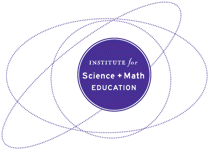Using Local Phenomena to Communicate Climate Solutions

Science communicators should be familiar with their audiences (e.g., how they talk and care about climate-related phenomena), and they should be involved with what local communities are doing to respond to climate change.
Organizational leadership should consistently share resources for climate science communicator professional development that support collaboration with local community members, businesses, government, tribal nations, educators, etc.—and prioritize that work.
What is the Issue?
Communicating the reasons why we should respond to climate change is no longer enough. Climate science communication must be grounded in the real actions of local communities. Focusing on the local phenomena (e.g., sea level rise and flooding in New Orleans) that are challenging communities, and local responses will allow others to envision solutions and approaches appropriate for their own community—fostering collective agency and collaborative decision-making amongst local governments, nonprofits, businesses, and the public.
Image caption: Founder of ISeeChange, Julia Kumari Drapkin, shows children a map of historic New Orleans. Drapkin highlights the parts of the city that used to be swamp. Credit: Impact Media Lab / AAAS
Authors:
by Christina Guevara, Elana Kimbrell, Emily Cloyd, Tiffany Lohwater & Abby Rhinehart | v. 2, April 2021
Reflection questions
- How are local community histories, needs, values, resources being considered in how you’re communicating your climate change knowledge?
- How are the knowledges of youth and diverse communities being seen and included as local assets in climate change response?
- How are the climate change responses you’re presenting adaptable and scalable across contexts?
- Which communities are or are not represented in how you’re communicating about climate change solutions?
Things to Consider
- When scientists communicate about climate change, solutions often seem distant and abstract to community members—even when the community involved is one of those most heavily impacted by climate change (e.g., young people and low-income communities of color).
A move towards climate communication that focuses on local solutions (and away from reiterating decontextualized facts) can alleviate climate anxiety and despair and promote agency. Communicate both the local risks and local solutions — what is concretely happening in communities today.
-
Focusing on local community responses allows individuals to make personal connections to climate change in positive and constructive ways. When climate change feels personal, urgent, and close-to-home, then peoples’ beliefs, values, and identities change to make informed decisions, reducing psychological distance and political polarization.
Because the impacts of climate change vary, it is necessary to communicate with the specific needs, values, and resources of each community or person in mind. Within each community, decisions are made based on interpretations of science findings within social and cultural contexts. Making decisions about complex issues like climate change requires contributions from experts outside your established network to maintain locally relevant adaptation and mitigation responses. Collaborate with local leaders, tribal nations, and others who live and work in your community to craft communications. Their place-based knowledge is essential.
Attending to Equity
- Low-income communities of color are disproportionately affected by climate change, yet are often excluded in decision making for climate resilience. Intersecting systems of oppression (e.g. racism, poverty, discrimination based on physical ability, etc.) limit peoples' access to necessary resources to adapt and plan for climate change.
- Learn how to meaningfully integrate a variety of types of expertise and cultural practices into decision making about climate change in ways that support local communities’ interests, needs, and wellbeing.
Recommended Actions You Can Take
- Explore the examples of local climate change response efforts in the American Association for the Advancement of Science (AAAS) resource “How We Respond,” including videos and narratives from around the United States. These examples demonstrate how communities can adapt to and mitigate climate change when they use scientific knowledge and expertise from diverse backgrounds and life ways. These stories also show the power of story in communication.
Continue to listen to and understand how communities are talking about climate change. Many Indigenous communities have been communicating and responding to climate change in innovative ways. Growing a network of collaborators with diverse cultural, community, geographic, and educational backgrounds can help keep your climate communication grounded in local needs and ways of relating to it.
Stay involved with local climate change responses to build relationships for action (e.g. Sunrise Movement, Moms Clean Air Force, Citizens’ Climate Lobby, IPL and 350.org). Justice-centered climate change talk and solutions can spread socially, as ideas and actions fan out and take hold.
ALSO SEE STEM TEACHING TOOLS
STEM Teaching Tools content copyright 2014-22 UW Institute for Science + Math Education. All rights reserved.
This site is primarily funded by the National Science Foundation (NSF) through Award #1920249 (previously through Awards #1238253 and #1854059). Opinions expressed are not those of any funding agency.
Work is licensed under a Creative Commons Attribution-ShareAlike 4.0 Unported License. Others may adapt with attribution. Funded by the National Science Foundation (NSF). Opinions expressed are not those of any funding agency.


 Email Feedback
Email Feedback


